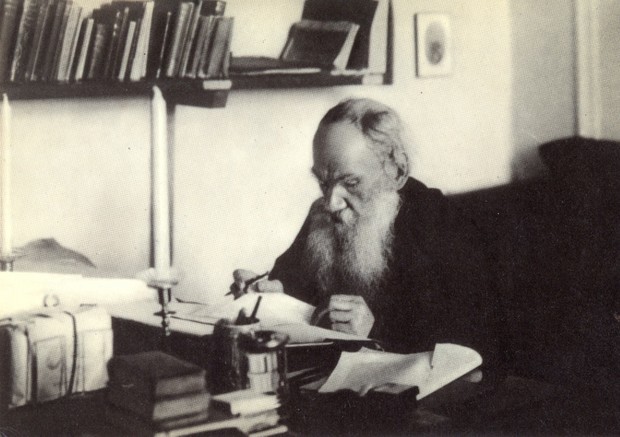Vsevolod Chaplin: ‘Attempts to reduce the Bible or to put a liberal interpretation have been made for a long time’
Bible: translation or ‘new reading’? Famous Orthodox cleric’s column about correction of the Bible
These days the Russian Orthodox Church has thought to correct the Russian Synodal Bible. It should be noted that sometimes attempts to translate the Holy Writ into the modern language were not approved by a part of the society. Suffice it to mention the Raskol in the 17 th century, which took place after 'book editing' and other reforms of the Church. Realnoe Vremya's columnist Protoiereus Vsevolod Chaplin wrote a new column for our online newspaper where he tells about the existing translations of Gospel into Russian and its state abroad. He also supported Nikolay Drozdov and Lyudmila Verbitskaya's initiative to read the holy texts on TV and at school.
What do 'spittle' and 'fig' mean?
The 140 th anniversary of the translation of the Russian Synodal Bible, which caused many discussions in its old days, 'launched' a discussion again whether our modern people know the texts respected by the Christians as Holy Writ and if they should be translated one more time.
It can't be said modern people don't understand the Russian Synodal Bible. Its translation began when Pushkin was alive – its language doesn't differ from the workpieces of the great poet. However, he also has words and realias that a modern-age person doesn't know. It is no surprise that there are many requests to renew the Synodal translation or make a completely new translation. Yes, some words and expressions can be easily substituted. But should we change, for example, an archaic word that means 'spittle' for vulgar 'spit' or substitute an unclear word than means 'fig' and call it simply 'fig' that is associated with the Post-Soviet East?

'But should we change, for example, an archaic word that means 'spittle' for vulgar 'spit' or substitute an unclear word than means 'fig' and call it simply 'fig' that is associated with the Post-Soviet East?' Photo: websad.ru
By the way, new Russian translations of the Bible made in Protestant communities appeared a long time ago. The language is close to the modern and even ordinary language. In some cases translators went further – they just changed the texts that were not comfortable for modernist theology, politically correct mind or views of the 'new religious movements'. So the New World Translation of the Holy Scriptures done by Jehovah's Witnesses partially 'retouches' words about Christ as God because supporters of this teaching consider Him as a supreme angel, which doesn't correspond to, for example, the first chapter of Paul the Apostle's Epistle to the Hebrews. Jehovah's Witnesses' the New World Translation sometimes uses 'faith of Jesus' instead of 'faith in Jesus'.
Gospel by Leo Tolstoy and politically correct Bibles
In fact, attempts to reduce the Bible or to put a liberal interpretation have been made for a long time. In Russia, Leo Tolstoy wrote his brief version of Gospel where he equalled Christ's teaching to moral rules or social mechanics as people would call it today. He chose a corresponding language, which was 'understandable for peasants'. Tolstoy added views to Gospel, which were absolutely strange to him. For example, Deism, which was trendy among the nineteenth-century aristocracy: 'God doesn't rule the people, sows seeds and doesn't care about them'. It obviously contradicts the text of the New Testament where God cares about people and His mission is aimed at their salvation in eternal life.

'In Russia, Leo Tolstoy wrote his brief version of Gospel where he equalled Christ's teaching to moral rules or social mechanics as people would call it today.' Photo: culture.ru
Western liberal Protestants also make their amendments in their interpretations while translating the Bible. At first the inclusive language appeared because of the feminist influence. So they stopped using masculine pronouns when speaking about God. They could simply write about It: 'She/He'. Then they started to get rid of or change moments that were uncomfortable for a 'modern person' until they became completely politically correct. For example, mentions about eternal damnation that God uses as punishment for faithless people and grave sinners. Initially, it was explained by a necessity to make a more 'accurate' translation. Moreover, it was done on the basis of a selective comparison of ancient sources, including apocryphal and doubtful sources. Then they started to say that some Biblical statements were made for 'uneducated' people of the past centuries, so they became obsolete, and no one needed them. Later they started to change the text as they wished. They said God could not be 'cruel' or 'pay attention' to miracles that don't exist or can't happen.
So 'translation' turned into interpretation, and interpretation became a review of the text, a tool of the temper, moods and ideological moods of the Godless society that thought the freedom of sin was the most important thing.
Holy Writ – to schools and TV
Unfortunately, people are trying to rewrite not only the Bible. They would like to 'adapt' many ancient texts, especially the texts that are important for religious people, so that they will be able to justify the sexual freedom and terrorist attacks. This is why people should know such texts in a verified version and authoritative interpretations. The Synodal translation is more accepted in the Russian-speaking world. Probably it needs some specifications. But any new translation will immediately face a powerful pressure towards an ideological review of the text – it was done in the West a long time ago.

'I cannot help but support Nikolay Drozdov who offered to read the Biblical texts on TV and radio and Lyudmila Verbitskaya who thinks it is right to read the Bible at school. It doesn't violate the secularity of the country.' Photo: Oleg Tikhonov
Modern people, especially those who are Orthodox and mix it with secular fashions and habits, need to read the Bible more. This is why I cannot help but support Nikolay Drozdov who offered to read the Biblical texts on TV and radio and Lyudmila Verbitskaya who thinks it is right to read the Bible at school. It doesn't violate the secularity of the country, which, in fact, means only an absence of any official religion as well as the status of religious entities as authorities. There are not fewer foundations to read Bible on TV than transmit football matches. Someone will be interested in Quran and Talmud. Authoritative interpretations, not lukewarm politically correct ones, are needed.
The basic texts of the world religions should be read completely. Let it be done bit by bit but without omission of the things that can shock a 'modern person' but also wake his or her conscience up and make think about life, what should be changed in it like in the life of the environment. 'For the word of God is alive and active. Sharper than any double-edged sword, it penetrates even to dividing soul and spirit, joints and marrow; it judges the thoughts and attitudes of the heart.' (Hebrews 4:12)